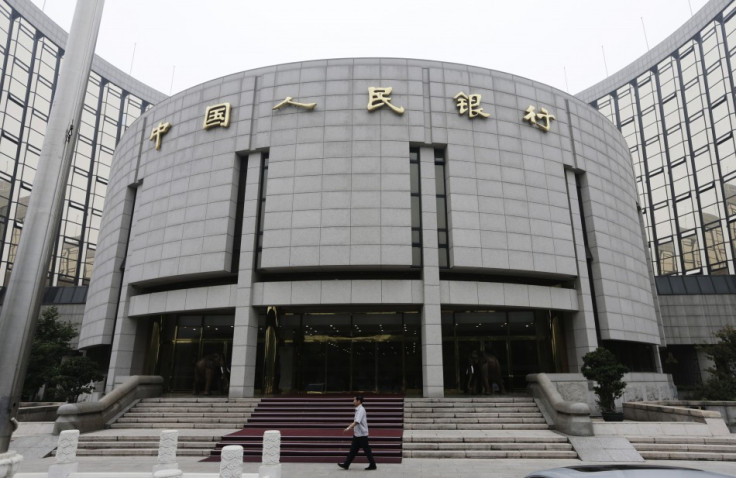China's Short-Term Borrowing Rates Rise on Central Bank's Higher Guidance

China's short-term money rates have risen after the central bank announced a set of measures as part of its two-pronged strategy to contain inflation and spur economic growth.
The country's key seven-day money rate increased by 13 basis points to 3.86% after the People's Bank of China (PBOC) set the seven-day reverse repo rate much higher than the secondary market rate.
On 13 August, the PBOC issued 11bn yuan of seven-day reverse purchase agreements as part of open-market operations - the buying and selling of government securities in the open market in order to expand or contract the amount of money in the banking system. The bank set the reverse repo rate at 3.9% above market expectations.
The reverse repo rate, an unofficial guidance interest rate for the market, is the level at which the central bank borrows money from other banks.
The move comes after the central bank issued 75.5tn yuan ($12.33bn, £8bn, €9.3bn) worth of three-year bills to remove cash from the market. The issuance was to neutralise the effect of a similar tranche of bills maturing the same day.
Despite a slowdown in the economic growth, China's central bank has restrained itself from undertaking large-scale stimulus to boost activity in fear of high inflation. However, the bank has resorted to small scale stimulus measures to save the economy from an eventual hard-landing.
Two-Way Strategy
The central bank's decision to reissue bills was in line with its plan to loosen short-term rates, while tightening long-term rates, according to dealers cited by Reuters. With the move, the PBOC targets to give banks cheap cash but discourage betting on longer-term debt.
"It's like the central bank is fixing a course that we have to follow," said a dealer at a joint-stock bank in Shanghai.
The strategy would support the economy with plenty of cash in the near term by maintaining smooth day-to-day funding needs. At the same time, people will have less money to invest and speculate for longer periods.
Investors' speculation on better yields in the long term generally leads to higher inflation that obstructs the central bank from taking monetary easing measures.
"The PBOC's intention is to stabilize short-term liquidity and push up long-term financing costs simultaneously, so as to facilitate the broader policy goal of cutting financial risks and industrial overcapacity," said Jiang Chao, analyst at Haitong Securities.
The situation is likely to benefit the country's banks, as they can borrow cheaply in the short term and receive higher yields from investing in longer-term bonds.
Lack of Clarity in Communication
While many economists predict that the move will result in higher long-term borrowing costs and lower business lending, some were sceptical about the central bank's strategy.
"We believe the central bank needs to clearly communicate its policy intentions at a time when confidence is weak and the market is still mindful of the recent cash crunch," analysts at ANZ Research wrote in a research report.
"The policy uncertainty will prevent banks from lending in long-tenor, which dampens the efficacy of the fiscal policy to boost growth."
China's economic growth declined to 7.5% year-on-year in the second quarter from 7.7% in the first quarter.
Some economists predict that the country's growth could slow down further in the second half of 2013.
© Copyright IBTimes 2025. All rights reserved.






















